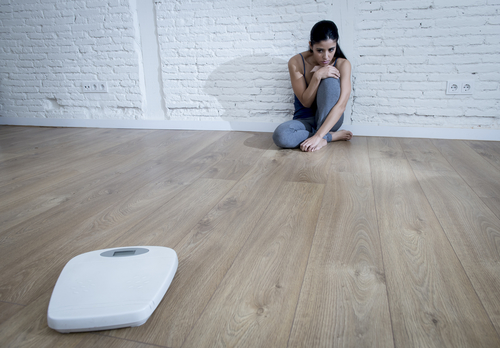Detoxing from benzodiazepines can feel overwhelming, especially if you’ve had them prescribed for anxiety, sleep, or panic. For women, the experience is often shaped by unique emotional and physical factors that make support and understanding even more important. This guide is here to help you understand what to expect, what makes benzodiazepine detox different for women, and how to take the first step with confidence.
Next Steps
If you’re struggling with addiction, you don’t have to face it alone. At Casa Capri, we offer expert, women-centered care in a supportive and nurturing space—designed by women, for women. Our team is here to help you heal with purpose and connection.
Call our admissions team for a free, confidential chat—we’ll even check your insurance and estimate any costs upfront.
Why Benzodiazepine Detox Affects Women Differently
Women often respond to benzodiazepines in ways that are shaped by hormones, mental health history, and body chemistry. These differences can influence how withdrawal feels and how long it lasts. Women are also more likely to have co-occurring conditions like trauma or anxiety, which can make detox more emotionally intense. A care approach that centers these realities helps create a safer and more effective detox experience.
What Happens During Benzodiazepine Detox
Benzodiazepine detox is the process of gradually clearing the drug from your body. Depending on your dosage and how long you’ve been taking it, withdrawal symptoms may start within hours or take a day or two to appear. These symptoms often include nausea, anxiety, muscle pain, headaches, and, in some cases, more serious effects like tremors or seizures. Xanax detox, Ativan detox, and Klonopin detox will all involve similar symptoms since each of these medications are benzodiazepines.
If you’re undergoing alcohol detox & benzodiazepines detox at the same time, symptoms may be more pronounced. A medically supervised benzodiazepine detox protocol is essential to help manage these symptoms and keep the process as safe and stable as possible.
Risks of Quitting Benzodiazepines Without Medical Support
Trying to stop benzodiazepines on your own can be dangerous. Sudden withdrawal can cause intense symptoms that are not only uncomfortable but also potentially life-threatening. Without medical support, you face higher risks of complications like seizures, panic episodes, and heart-related issues. Professional detox care helps minimize these risks and gives your body a controlled, supportive environment to adjust.

How to Prepare for a Safe and Effective Detox
Preparing for benzodiazepine detox goes beyond setting a date. It means getting emotionally ready, making practical arrangements, and surrounding yourself with the right support. If possible, speak with a medical professional ahead of time to understand your tapering plan. Let trusted friends or family know what you’re going through and arrange time off from work or caregiving responsibilities if needed. The more stable your environment is going in, the more focused and supported you’ll feel throughout the process.
What to Look for in a Detox Center for Women
Choosing the right detox center can make all the difference in how supported you feel during this vulnerable time. Look for a program that offers medical oversight, individualized care plans, and mental health support. For women, it’s also important to find a space that understands the emotional and physical aspects of female-specific detox. A women-focused environment can provide added safety, reduce stress, and offer care that feels more aligned with your needs.
Life After Detox: What Comes Next in Recovery
Detoxing from benzodiazepines is the first step, not the finish line. After the initial withdrawal period, ongoing support is crucial for long-term healing. Many women continue into inpatient or outpatient treatment, where they can explore the root causes of their benzodiazepine use and develop healthier coping strategies. It’s also important to receive education, including why mixing uppers with downers is dangerous.
Therapy, support groups, and lifestyle changes can help rebuild confidence and structure. Recovery is a process, and life after detox can be a time of deep growth and renewal with the right tools in place.
Next Steps
If you’re struggling with addiction, you don’t have to face it alone. At Casa Capri, we offer expert, women-centered care in a supportive and nurturing space—designed by women, for women. Our team is here to help you heal with purpose and connection.
Call our admissions team for a free, confidential chat—we’ll even check your insurance and estimate any costs upfront.
Why Women Choose Casa Capri Recovery for Benzodiazepine Detox
Casa Capri Recovery offers a safe and supportive environment. We offer benzodiazepine addiction treatment, Xanax addiction treatment, Ativan abuse treatment, and Klonopin addiction treatment designed specifically for women. With an all-female clinical team and a trauma-informed approach, the detox experience is built around compassion, connection, and expert care.
Whether you’re starting your recovery for the first time or returning after a relapse, we provide medical support, emotional guidance, and a sense of belonging that helps women feel seen and cared for throughout the detox process.
Frequently Asked Questions About Benzodiazepine Detox for Women
How long does benzodiazepine detox take for women?
The length of detox depends on the specific medication, dosage, and how long you’ve been using it. For many women, symptoms can last from several days to a few weeks. A slow taper is often recommended to reduce risk and discomfort.
Is it safe to detox from benzodiazepines at home?
Detoxing at home without medical support can be dangerous, especially after long-term use. Withdrawal symptoms can include seizures and severe anxiety. A supervised setting is strongly recommended.
What are common withdrawal symptoms in women?
Women may experience symptoms like mood swings, muscle pain, panic attacks, and nausea. Hormonal changes and mental health history can make these symptoms more intense.
Can I switch to another medication to help with detox?
In some cases, doctors may prescribe a longer-acting benzodiazepine to help with tapering. This should always be done under medical supervision to avoid complications.
What support is available after detox?
After detox, many women continue with inpatient treatment, outpatient care, or therapy. Support groups, relapse prevention planning, and lifestyle changes also play a big role in long-term recovery. At Casi Capri, we provide women-only residential care and virtual IOP after completing detox.



